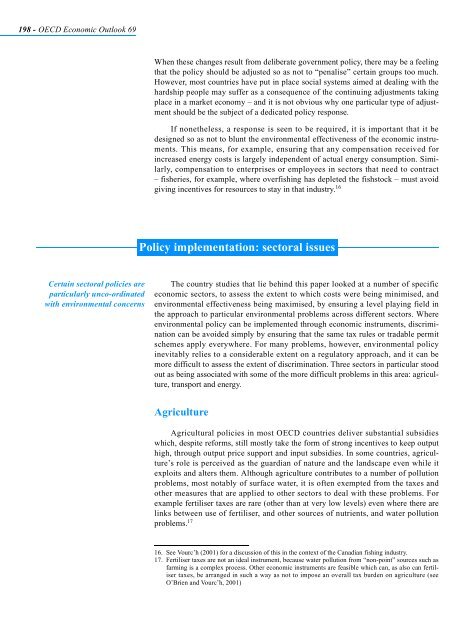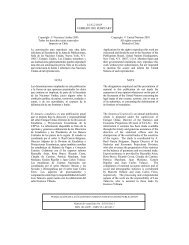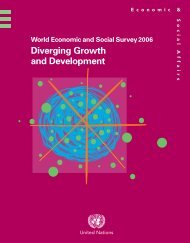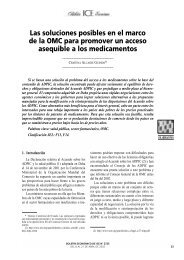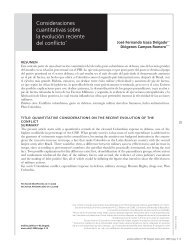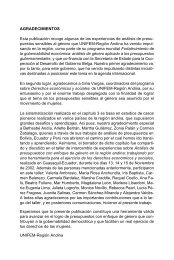OECD Economic Outlook 69 - Biblioteca Hegoa
OECD Economic Outlook 69 - Biblioteca Hegoa
OECD Economic Outlook 69 - Biblioteca Hegoa
Create successful ePaper yourself
Turn your PDF publications into a flip-book with our unique Google optimized e-Paper software.
198 - <strong>OECD</strong> <strong>Economic</strong> <strong>Outlook</strong> <strong>69</strong><br />
Certain sectoral policies are<br />
particularly unco-ordinated<br />
with environmental concerns<br />
When these changes result from deliberate government policy, there may be a feeling<br />
that the policy should be adjusted so as not to “penalise” certain groups too much.<br />
However, most countries have put in place social systems aimed at dealing with the<br />
hardship people may suffer as a consequence of the continuing adjustments taking<br />
place in a market economy – and it is not obvious why one particular type of adjustment<br />
should be the subject of a dedicated policy response.<br />
If nonetheless, a response is seen to be required, it is important that it be<br />
designed so as not to blunt the environmental effectiveness of the economic instruments.<br />
This means, for example, ensuring that any compensation received for<br />
increased energy costs is largely independent of actual energy consumption. Similarly,<br />
compensation to enterprises or employees in sectors that need to contract<br />
– fisheries, for example, where overfishing has depleted the fishstock – must avoid<br />
giving incentives for resources to stay in that industry. 16<br />
Policy implementation: sectoral issues<br />
The country studies that lie behind this paper looked at a number of specific<br />
economic sectors, to assess the extent to which costs were being minimised, and<br />
environmental effectiveness being maximised, by ensuring a level playing field in<br />
the approach to particular environmental problems across different sectors. Where<br />
environmental policy can be implemented through economic instruments, discrimination<br />
can be avoided simply by ensuring that the same tax rules or tradable permit<br />
schemes apply everywhere. For many problems, however, environmental policy<br />
inevitably relies to a considerable extent on a regulatory approach, and it can be<br />
more difficult to assess the extent of discrimination. Three sectors in particular stood<br />
out as being associated with some of the more difficult problems in this area: agriculture,<br />
transport and energy.<br />
Agriculture<br />
Agricultural policies in most <strong>OECD</strong> countries deliver substantial subsidies<br />
which, despite reforms, still mostly take the form of strong incentives to keep output<br />
high, through output price support and input subsidies. In some countries, agriculture’s<br />
role is perceived as the guardian of nature and the landscape even while it<br />
exploits and alters them. Although agriculture contributes to a number of pollution<br />
problems, most notably of surface water, it is often exempted from the taxes and<br />
other measures that are applied to other sectors to deal with these problems. For<br />
example fertiliser taxes are rare (other than at very low levels) even where there are<br />
links between use of fertiliser, and other sources of nutrients, and water pollution<br />
problems. 17<br />
16. See Vourc’h (2001) for a discussion of this in the context of the Canadian fishing industry.<br />
17. Fertiliser taxes are not an ideal instrument, because water pollution from “non-point” sources such as<br />
farming is a complex process. Other economic instruments are feasible which can, as also can fertiliser<br />
taxes, be arranged in such a way as not to impose an overall tax burden on agriculture (see<br />
O’Brien and Vourc’h, 2001)


